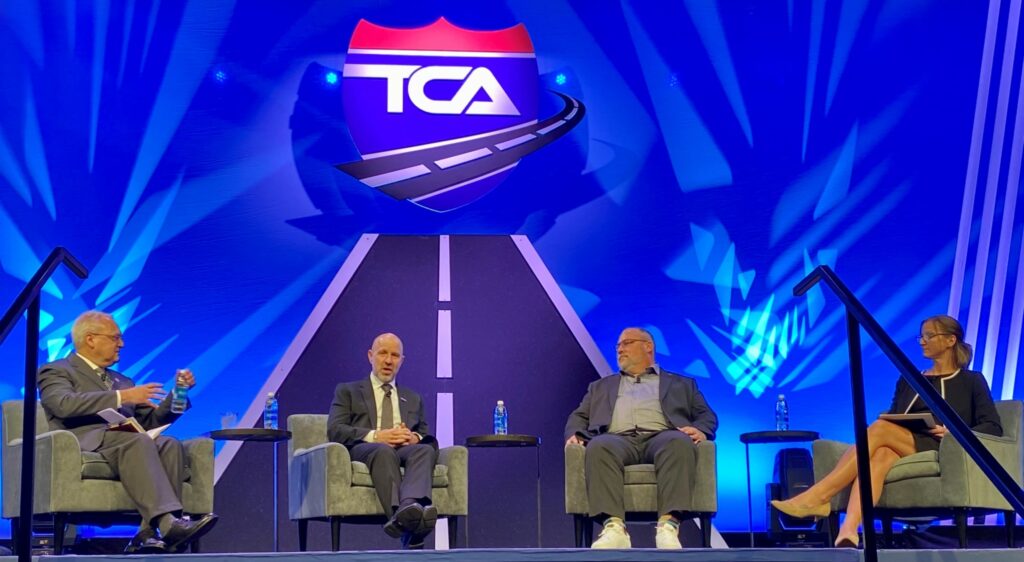Developing, engaging employees is key with an evolving workforce
Bare minimum Monday – similar to ‘quiet quitting’, which involves just doing the minimum requirements of one’s job – is now a thing. And it’s just one of the factors fleet managers need to consider when it comes to managing an evolving workforce.
Today’s employees want to grow within an organization, seek one-on-one feedback, and prefer digital communication, Challenger Motor Freight vice-president – people and culture Geoff Topping said during a panel discussion at Truckload Carriers Association’s annual convention in Orlando, Florida.

Garner Trucking recognizes that digital preference and uses multi-format messaging – text, video, and print – to communicate with staff. And Tim Chrulski, chief operations officer, said it will play a role in helping transfer the knowledge of aging workers to a new generation.
As important as it is to convey information, training should also be tailored to personal requirements, added Garth Pitzel, Bison Transport’s associate vice-president – safety and driver development.
The fleet is committed to promoting from within and uses its Charging Ahead program and corporate awards to develop employees.
When given opportunities to develop and grow, after all, employees will remain engaged.
Leadership training
Chrulski said Garner offers a four-year program for all employees to understand the roles of others, preparing them for future leadership roles. “It helps them better understand what they are dealing with and all become sensitive to each other’s jobs and talents.”
The training is not mandatory, but a financial reward is offered for completing each step.
Challenger, meanwhile, offers nine days of leadership training for 15 selected candidates to help broaden their skills.
What about the costs if they choose to leave the organization, asked Karen Smerchek, president Veriha Trucking, who moderated the panel discussion.
Topping answered: “What if we don’t train them and they stay? We’ve lost people, but it is better for the industry.”
“And they might come back,” added Chrulski.
Changing processes
Any change in process, though, needs to be backed by a good change management plan, Topping said.
Change in one area will affect another, and companies must communicate the reason for change and offer training. Everyone touched by the plan must be involved in planning and communication sessions too, he said.
Pitzel said satisfaction surveys are the litmus test for processes and culture at Bison.
Topping noted that simply talking to employees is crucial as well. But the bigger concern can be when you don’t hear from them.
“If they stop calling, it’s a problem,” he said.
Promoting diversity
In the midst of all of it, committing to an inclusive and diversified workforce will help attract more people to the industry.
Topping said Canada has an advantage here because it is a multicultural society. Still, while different ethnic groups are part of the industry, more needs to be done to attract young people and women, he said.
Chrulski said he looks at capability, not color. “Hire those who can do the job, let everything else go, embrace the differences, and make a better organization.”
Have your say
This is a moderated forum. Comments will no longer be published unless they are accompanied by a first and last name and a verifiable email address. (Today's Trucking will not publish or share the email address.) Profane language and content deemed to be libelous, racist, or threatening in nature will not be published under any circumstances.